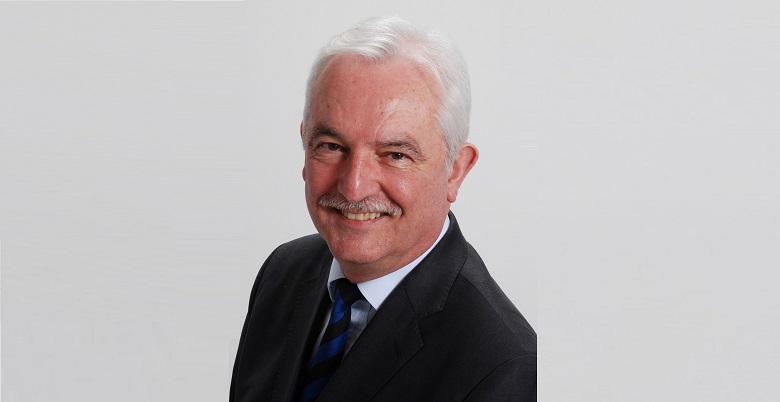
Court of Protection senior judge retires
Senior Judge Denzil Lush retires today (Monday 18th July) after nearly four decades in law. He told Today’s Wills and Probate about his career highlights.
Obviously estate planning and probate has been a specialism of yours throughout your career – what, for you, made this an interesting area to work in?
“When I was a student, I used to visit the Public Record Office in Chancery Lane to look at old wills that had been proved in the ecclesiastical courts before the Court of Probate Act 1857 transferred the responsibility for granting probate and letters of administration from the church courts to the civil courts. In about one in twenty cases, the personality of the testator shone through, and you felt as though you had actually met them, even though they had been dead for centuries.
“When I was in practice I particularly enjoyed drafting wills and often tried to create a pen portrait of the individual within the will itself. I did this by going to town on their funeral instructions, including specific bequests of chattels, and pecuniary legacies to people they were fond of, or charities they were interested in supporting.
“As far as the Court of Protection is concerned, I used to appear two or three times a year before my predecessor, Master Macfarlane. She had previously been the Registrar at Bromley County Court and was, in fact, the first female County Court judge in England & Wales.
“My first appearance before her was on 14 March 1985. The date is etched on my mind, because it was like a Damascus Road experience that changed my life forever. Even though I lost the case, I thought: “Wow, what an amazing job this woman has got. I want that job”.
“So, subsequently, I sought to create for myself a CV that might make me worthy to be her successor. I did this by: writing articles initially, and later books; being a member of a couple of influential committees at the Law Society and the British Medical Association; giving talks on the lecture circuit and obtaining a judicial appointment as a part-time chairman of the Social Security Appeals Tribunal.
“Fortunately, it paid off, and I was appointed as Master of the Court of Protection twenty years ago, in April 1996, nine years after my first appearance before my predecessor.”
What changes have you seen in the field over the years?
“When I was a solicitor in private practice my colleagues used to tease me for doing Court of Protection work, because they thought that it was more suitable for trainee solicitors and legal executives than for a partner in the firm. It is now a mainstream area of practice, in which several hundred barristers and solicitors vie with each other for the highest places in the Court of Protection league tables which Chambers UK and the Legal 500 have been publishing for the last four years.
“In the eleven and a half years between my appointment as Master in April 1996 and October 2007, when the MCA came into force, only nine Court of Protection cases found their way into the law reports. Last year alone, 76 judgments in Court of Protection cases were published on the BAILII website, and 40 of these appeared in Jordan Publishing’s Court of Protection Law Reports. Eighteen of the 43 judgments I published on BAILII last year were reported in the national, regional press and even, once or twice, international press.
“Then there’s the number of applications to register Powers of Attorney. In 1996, there were 8,921 applications to the Court of Protection to register Enduring Powers of Attorney. During the financial year 2015/16 the Office of the Public Guardian (OPG) received 15,000 applications to register EPAs, but that was inconsequential compared with the 477,264 applications the OPG received to register Lasting Powers of Attorney (LPAs).
“The number of judges has increased too. Until 2001, I was the only judicial office holder in the Court of Protection. There were two Assistant Masters, but they were both civil servants, rather than judges. In 2001 District Judge Gordon Ashton, who was based at Preston, was appointed as Deputy Master to hear any contentious matters in the north-west of England, and from then onwards there were two of us until the Mental Capacity Act 2005 (MCA) came into force on 1 October 2007, when the number of judges simply proliferated. Now, over 200 District Judges, Circuit Judges, and High Court Judges are nominated to hear Court of Protection cases, most of whom I wouldn’t know from Adam.”
What changes would you like to see in terms of new legislation and regulation?
“Firstly, we shall need to consider updating the Mental Capacity Act, and almost certainly delete the word ‘mental’ from its title, within the next five years or so. This is because in 2009, four years after the MCA was enacted, we ratified the United Nations Convention on the Rights of Persons with Disabilities (CRPD).
“In April 2014 the Ministry of Justice launched an investigation into whether the MCA is compliant with the UN Convention. It commissioned the Essex Autonomy Project, based at the University of Essex, to provide technical advice and assistance, which culminated in a report published on 22 September 2014 that concluded that the MCA is not fully compliant with the United Nations Convention on the Rights of Persons with Disabilities for two main reasons. Number one is that the definition of ‘mental incapacity’ in section 2(1) of the MCA violates the anti-discrimination provisions of CRPD Article 5, specifically in its restriction of mental incapacity to those who suffer from ‘an impairment of, or a disturbance in the functioning of, the mind or brain.’ And number two is that the best-interests decision-making framework of section 4 of the MCA fails to satisfy the requirements of CRPD Article 12 (4), which requires safeguards to ensure respect for the rights, will and preference of disabled persons in matters pertaining to the exercise of legal capacity. So both those aspects of the MCA need to be amended.
“In the course of amending the Act to make it compliant with the CRPD, we may also need to address issues relating to undue influence, which is specifically referred to in the Convention, and so the new legislation might combine both capacity and undue influence.
“Another change I’d like to see would be England & Wales ratifying the Hague Convention on the International Protection of Adults. At the moment, it has been ratified by Scotland but not by the rest of the UK, and the ratification will require us to pass secondary legislation that will facilitate the international recognition of protective measures made by foreign courts and tribunals, and the international recognition of lasting powers of attorney. Better still would be a global power of attorney that is recognised everywhere.”
What did winning the Geoffrey Shindler Award for Outstanding Contribution to the Profession at the STEP Private Client Awards 2009/2010 mean to you?
“I knew nothing about it beforehand and it came as a complete surprise. I was very touched to have received such an award from STEP as I have a lot of respect and affection for the society. It’s done an incredible amount to raise the profile of trusts and estates practice, and to raise professional standards. The award itself was a nice piece of etched glass. It’s now on a shelf in my study.”
Your book on lasting and enduring powers of attorney ran to seven editions – any plans to write another book in retirement?
“I may need to update that book before I become out of touch. In fact, purely by coincidence, I received an email this week from the publisher saying: ‘I thought I would drop you a line to see whether in your retirement you would be interested in updating Cretney & Lush? It’s been nearly three years since the last edition. There seems to be plenty of material for a new edition and stock levels of the current edition are low.”
“There are one or two other things I’d like to write as well but they’re definitely not law books.”
What has been the highlight of your career?
“It’s very hard to choose. I have written a couple of articles recently for the Elder Law Journal, which have basically been memoirs.
“The first was about some of the famous people (who have since died) for whom I made an order of one kind or another. One example was an objection to the registration of an Enduring Power of Attorney made by the composer Sir Malcolm Arnold, which I dealt with in 2003. I wasn’t aware of his music before dealing with this case, but now I listen to him all the time, probably more than any other composer. Then there was the severing of an ineffective clause from an Enduring Power of Attorney made by Margaret Thatcher. I dealt with the application in February 2013, only a couple of months before her death. And I also wrote an article about making a statutory will in April 2013 for Prince Friso of the Netherlands, the second of Queen Beatrix’s three sons, who had suffered anoxic brain damage when he was buried by an avalanche of snow when he was skiing in Austria. He lived in Hammersmith and was a patient at the Wellington Hospital. Queen Beatrix used to visit him there every weekend. There are several similar highlights I could mention, but won’t because the people concerned are still alive.
“The second article, which is in the current issue of Elder Law Journal, is titled Managing Damages Awards, and describes how, when I was appointed as Master of the Court of Protection in April 1996, I was immediately thrown in at the deep end and expected to make decisions on the top-of-the-range personal injury and clinical negligence cases in England and Wales. There was a steep learning curve at first, but I realised straightaway that I preferred this aspect of the job to any other. Why? Well, it involved the management of estates, which was familiar territory to me, but the ground rules were entirely different from administering a deceased’s estate or the affairs of older clients. An obvious example is Inheritance Tax planning, which is often a starting point for advising elderly clients, but a non-starter in damages cases. I held two or three meetings a week to discuss the future management of individual damages awards, which gave me the chance to meet many accident victims and their families, some of whom are truly remarkable people. I was in a unique position of oversight, and behind the scenes, I became involved in some of the leading cases of the day, which is what the article is all about.”
If you had three pieces of advice for a solicitor at the start of their career in trusts and probates, what would they be?
“When Tony Blair was campaigning to be Prime Minister in 1997 he had a famous slogan for his three priorities in office: ‘Education, Education, Education’. And I would say the same to any solicitor at the start of their career in trusts and probate.
“So, yes, my first piece of advice is, obtain all the qualifications you can, whether it be a postgraduate degree, or a diploma or advanced certificate from STEP, Solicitors for the Elderly and The Law Society’s Private Client Section. Or even qualify in another jurisdiction. I was also admitted to practise as a solicitor and notary public in Scotland, though I never actually did so in the end.
“Obtaining as many qualifications as you can increases your knowledge of the subject, gives you greater confidence in practice, and grants you greater credibility to the world at large.
“The second piece of advice is to get yourself noticed and join one of the committees of the organisations I’ve just mentioned. There you’ll get to meet some of the leading practitioners and policy makers in this field and become aware of developments on the horizon that will enable you to keep you ahead of the game.
“The third piece of advice is to write a few articles. It’s easier now than it was when I was at the start of my career because most firms have their own websites and thanks to the proliferation of social media generally. In several of the talks I have given in the last year or so, I have actually quoted from young practitioners’ comments or blogs about my judgments in particular cases.”
What are your plans after retirement?
“Well, I am currently fending off offers to become a director, or treasurer or trustee of this or that organisation, because frankly I could do with a break.
“I have, however, accepted appointment as a trustee of the charity Action on Elder Abuse. During the last five years much of my work has involved applications by the Public Guardian to remove deputies or attorneys because they have contravened their authority or failed to act in the best interests of the person who lacks capacity.
“Action on Elder Abuse does a good job, and I hope that I will be able to assist it in raising awareness of the extent of elder abuse, and devising ways of preventing and combating it.”
For more information on Action for Elder Abuse log on to www.elderabuse.org.uk









